Driving your vehicle without an A/C system that is not working can be uncomfortable and downright dangerous on a hot day.
There are three different ways that a vehicle’s air conditioning system may not be cooling properly. This article is broken down into these three sections to help save you time:
- Not blowing air at all
- Not blowing cold enough
- Not blowing cool air
The first section, not blowing air at all, is pretty straightforward. The other two deal with air temperature, and there can be quite a few causes for failure to cool.
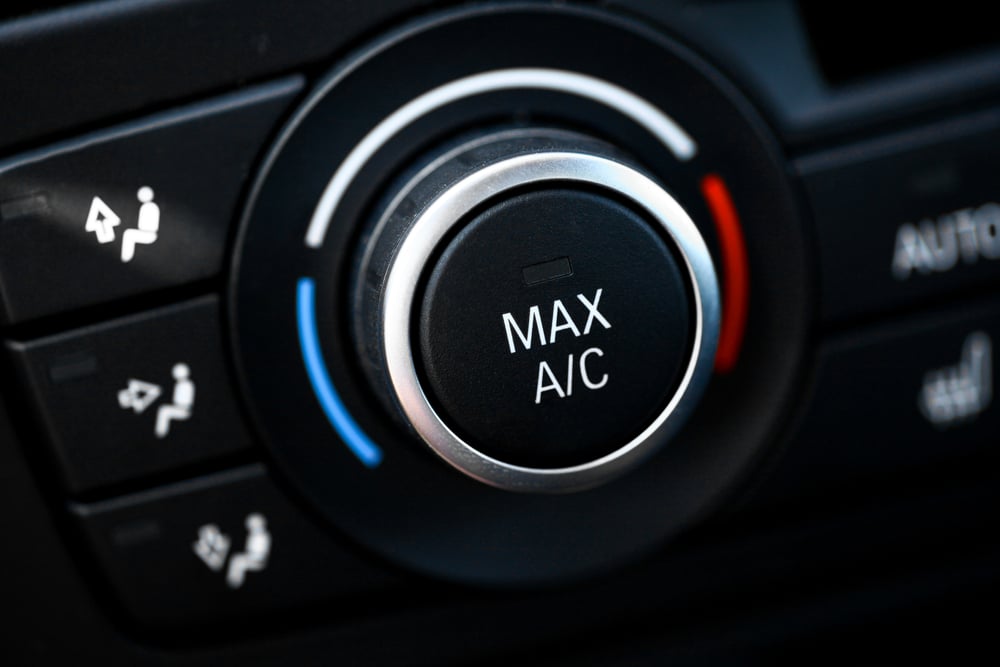
AC Not Working Quick Help
- No air moving at all is usually a bad blower motor.
- When the cooling system is suddenly not blowing cool enough, check the condenser up front for debris (quick and easy).
- Knowing whether or not the system has a charge is vital to a proper diagnosis. There are just too many variables otherwise.
1. AC Blowing No Air at All
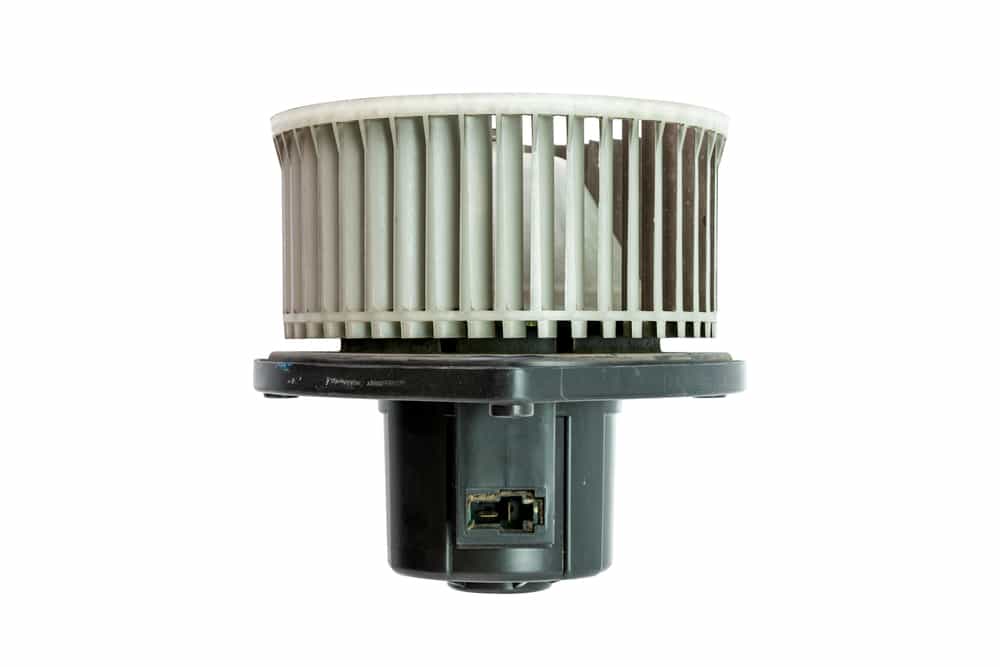
When there’s no air flowing through the vehicle’s cabin, it is usually pretty easy to diagnose. A bad blower motor usually causes this scenario. However, there are a few less common reasons as well.
If you don’t hear any noise coming from the blower motor, the air conditioner not working is going to be caused by one of the two items.
Bad Blower Motor (Most Likely)
Blower motors are known to fail without warning. If all the dash lights are on, the climate control system looks like it should be working, and no air moves, you should suspect the blower motor.
Before replacing it, turn the fan up to its highest setting. You have a bad blower motor resistor if it starts blowing cold air on high.
Here’s how to test a blower motor with a multimeter (electrouniversity)
Blower Motor Resistor
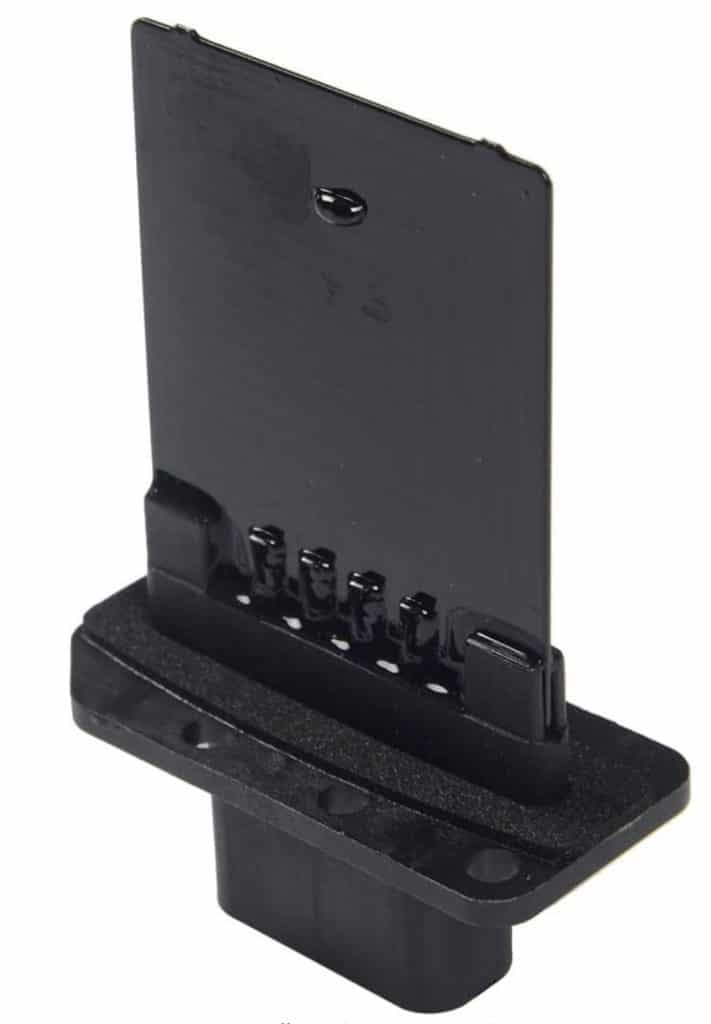
Depending on the resistor in question, it will still be able to turn on the blower motor when you turn the speed all the way up. Sometimes, it’ll still do nothing.
You can tell if the blower motor resistor has failed by testing for voltage where the harness plugs into the blower motor.
We recommend testing the circuit for voltage at the blower motor first because it’s almost always easier. A simple test light will usually do the trick.
If voltage goes to the blower motor, it’ll need replacing. If there’s no voltage, suspect the resistor.
2. AC System Not Blowing Cold Enough
The most common reason for a car AC system that isn’t blowing cold enough is low refrigerant levels, followed by a dirty evaporator, or condenser issues.
Refrigerant Leak
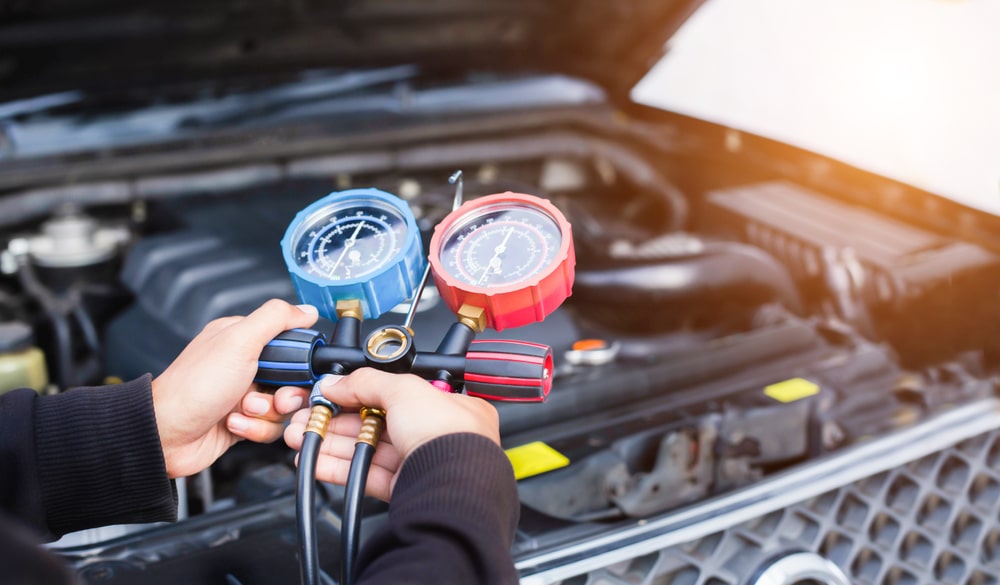
Testing the AC system pressure can help determine if you are chasing a leak or if there’s another issue at work. If the A/C system leaks, you can chase it down with a leak detection kit and UV dye.
Here’s how to go about testing the pressure and chasing the leak:
If you add too much coolant, you can cause more leaks in the AC system.
If the refrigerant leaks out of the system, eventually, there won’t be enough left to cool the vehicle.
Having the system recharged can temporarily get your AC system blowing cold again. But, the coolant will leak out again. As a result, the system pressure will diminish, and you’ll have to repeat the cycle unless you discover WHY the system was leaking and repair it.
Blend Door Actuator
The blend door actuator is responsible for adjusting how much air gets in from the A/C system and the heater core.
The blend door actuator may be bad or stuck if your AC system is not blowing cold air. Sometimes, when on an all-day trip, the blend door can freeze up, and it’ll stay in whatever position it was in when frozen.
When your A/C is blowing WARMER than the outside temperature, it strongly indicates that the blend door actuator is causing the cooling issues.
Here’s what a bad blend door actuator sounds like:
Cooling Fan
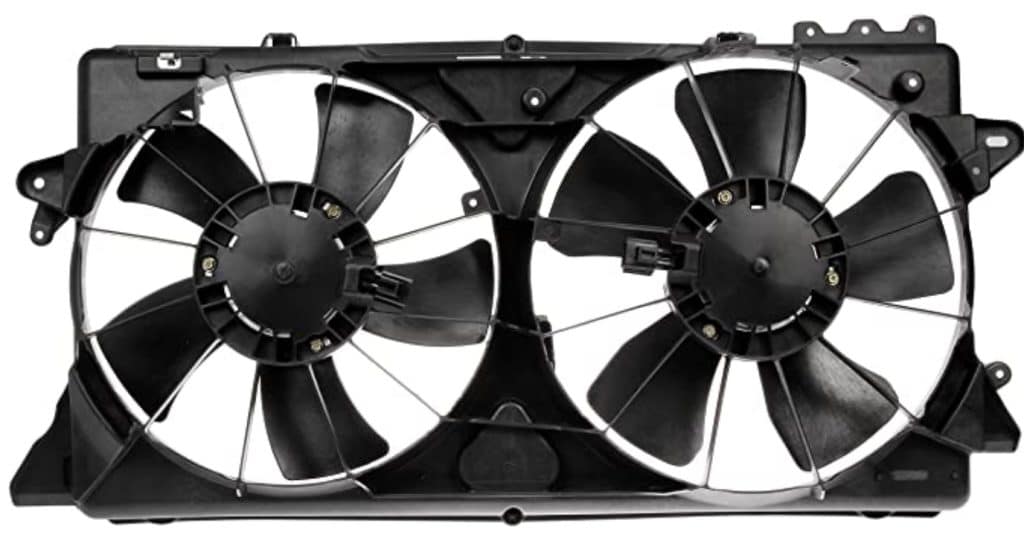
A defective cooling fan will cause a vehicle’s AC to stop working well. The cooling fan blows fresh air over the condenser and helps it dissipate heat. When the air going over it slows down, it can’t do it’s job as well.
Suspect the cooling fan if the AC system blows colder when driving on the highway (more air going over the condenser).
You’ve probably noticed when you turn the A/C on that you’ll hear clicking and a blowing noise coming from the front of the vehicle. If that noise has stopped and the A/C isn’t blowing as cold as it once was, suspect the cooling fan.
Cooling fans can stop working for a few reasons. A blown fuse, wiring harness issue going to it (prime location for rodent damage), or a bad motor are the most common reasons this happens.
Cabin Air Filter
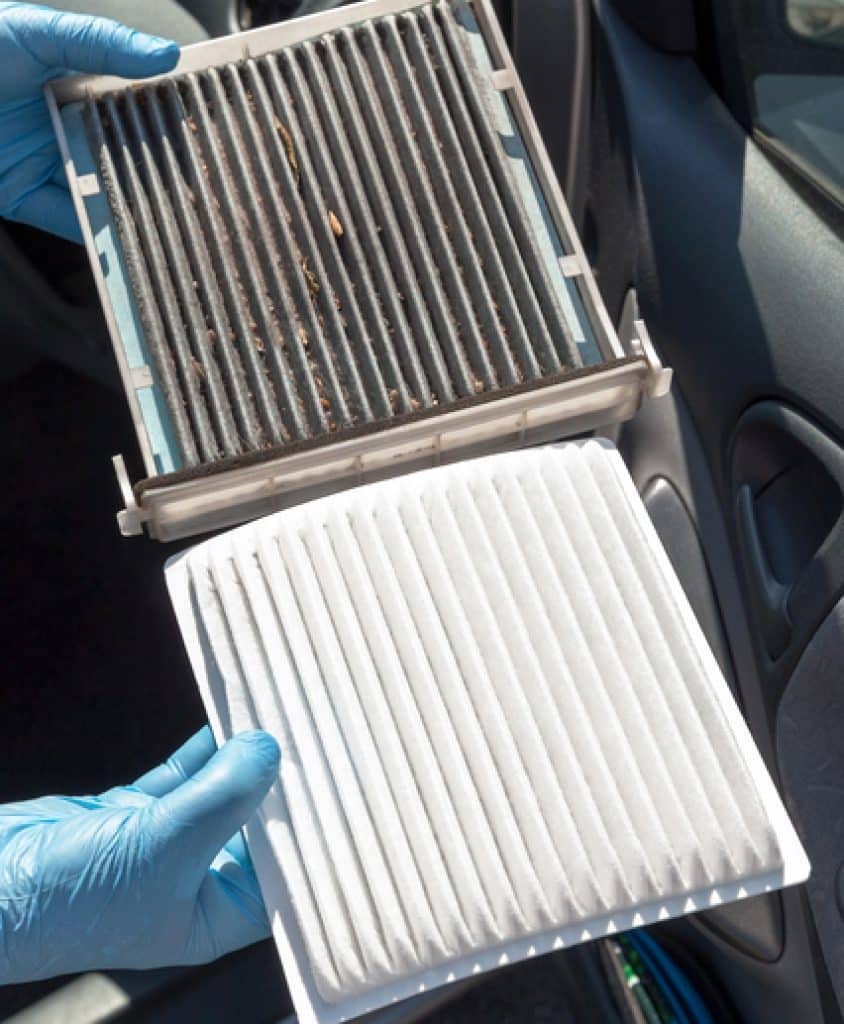
The cabin air can cause the air speed coming from the blower motor to slow down. It is one of the most overlooked maintenance items on a vehicle. Almost all modern cars and trucks have them.
As a rule, most cabin air filters are accessed underneath the glove compartment and are located near the blower motor.
Changing it will restore airspeed, but it won’t do anything for you if you have warm air coming in the cabin.
Condenser
If the vehicle is blowing coolish (but not cold) air, a condenser issue is often the cause. You can check it at home. It’s a little radiator that has A/C lines running to and from it. It’ll be right by the main radiator in the grille.
Take a look at it. If some large debris is keeping air from flowing over it, the AC system can’t properly cool the vehicle.
If it’s muddy or dirty, hose it off. It can make a difference.
Dirty Evaporator
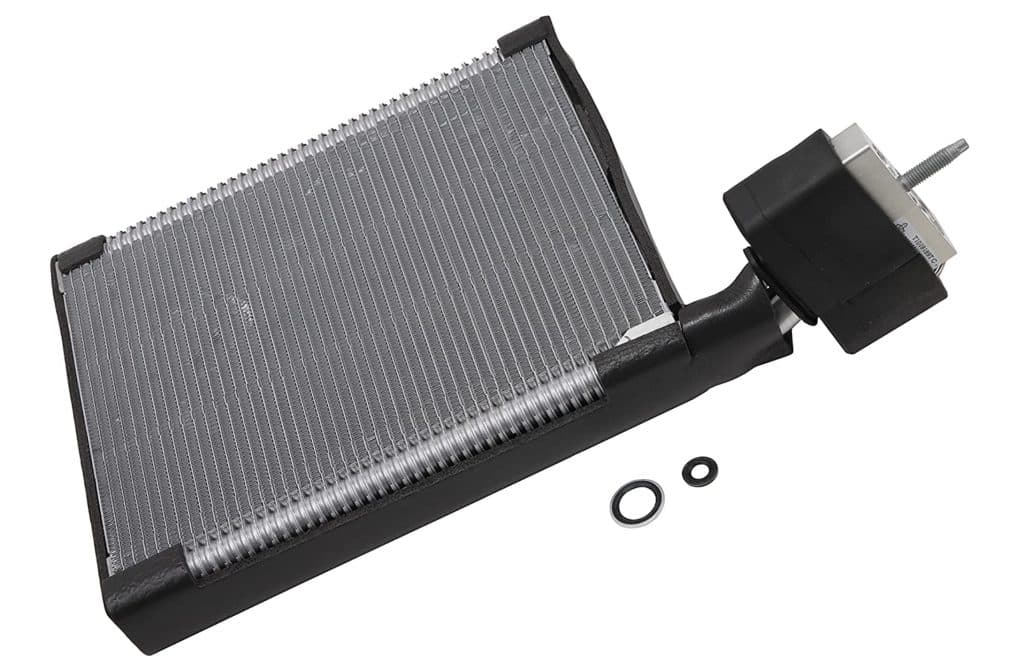
If the evaporator is dirty, one of the most common tells is that the A/C system smells when it’s on.
Usually, you only need to worry about this if you’ve had something get in the AC system and nest up there or the vehicle has seen a very high amount of dirt in the cabin.
3. System Not Blowing Cold at All
Bad AC Compressor
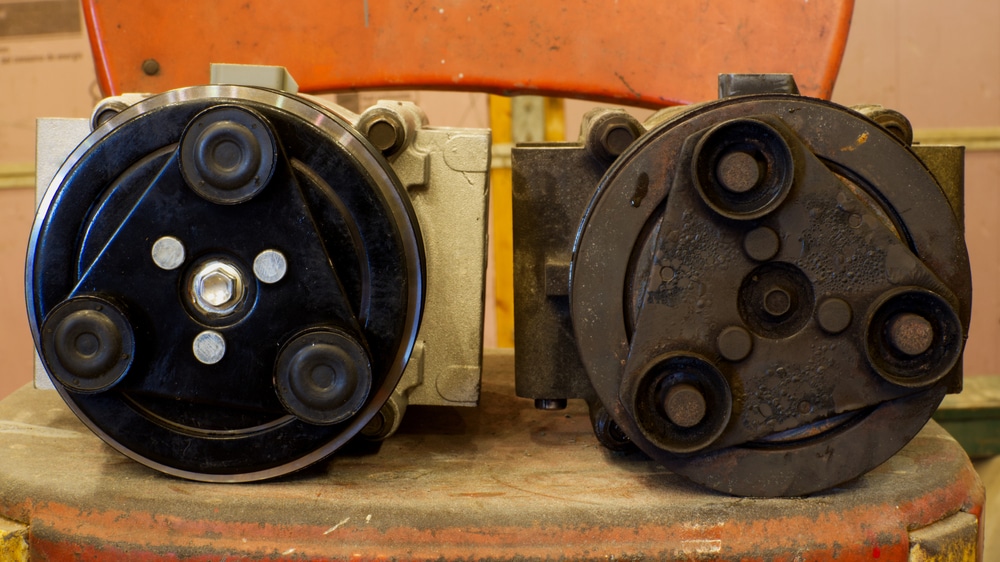
A lot of AC problems are caused by a bad compressor. Unfortunately, if it’s broken, there’s no repairing an AC compressor. Instead, it’ll need replacing.
The AC system uses a clutch that activates the compressor when needed. When it’s not required, the AC pulley spins freely on the accessory belt, but the compressor isn’t turning.
When you turn the system on, you should be able to feel that the clutch is engaging. You should hear a “clunk” noise. The engine will briefly react, and you might even be able to listen to the slight hiss of refrigerant going through the system.
One of the most common reasons an air conditioning compressor will wear out is the lack of coolant. Coolant doesn’t just pull heat out of the air; it lubricates the system. So when the AC unit runs with no or low coolant for a long time, it’ll wear out.
Low or No Refrigerant
If the vehicle’s AC system stops working altogether, a system leak and no coolant is a common reason why this would happen.
Electrical Issues
Here are a few of the most common electrical problems that can keep a car’s air conditioner from working correctly. Look for these if the vehicle’s air conditioner isn’t working at all:
- Switch failure
- Blown AC system fuse
- Bad control module
- Harness damage at the AC compressor
